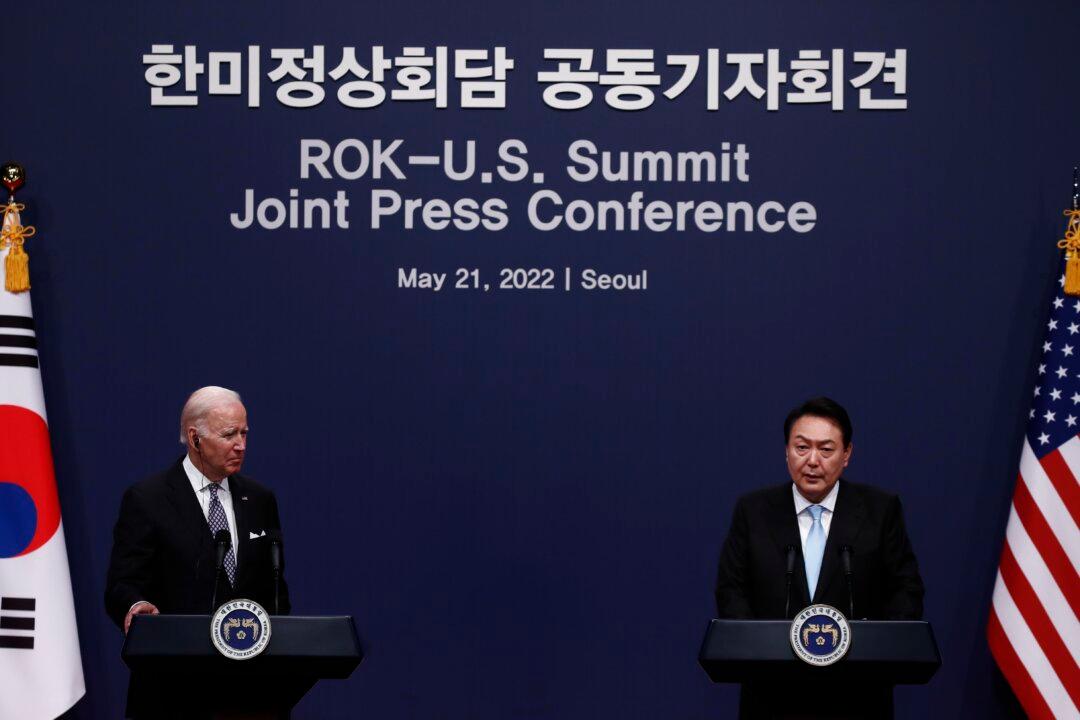President Joe Biden, on Friday, landed in South Korea on his first trip to Asia since taking office. The five-day itinerary, which will also take him to Japan, aims to strengthen Indo-Pacific alliances to counter Chinese influence.
After touching down in Seoul, Biden first toured Samsung’s chip complex in Pyeongtaek, accompanied by the new South Korean president, Yoon Suk-yeol, and guided by Samsung Electronics Vice Chairman Lee Jae-yong.





